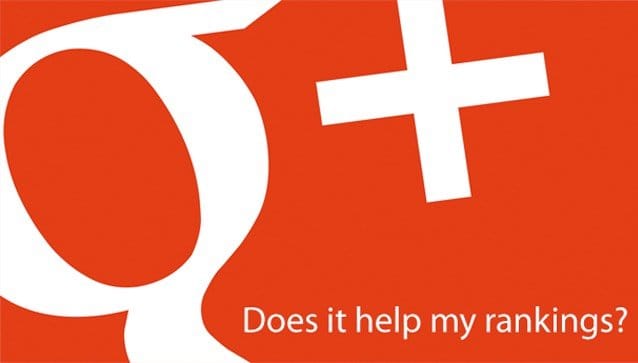 Written by ContentPowered.com
Written by ContentPowered.com
We’re a couple of months into 2015 now, and I’m seeing social signals growing in importance. There was a time for a little while where Google refused to use any social signals at all. They launched Google+ as an attempt to create a social site they could rely on. You know what? It was all Twitter’s fault.
See, a while back Twitter and Google formed a bit of a partnership. Google was experimenting with real time search, and they figured that Twitter was a great source of constant data. The streams of data coming in from Twitter fueled instant trend information and had a response time of seconds between major events and amateur reporting on those events. If Google could tap into that stream, exclusively, they would become more powerful than you could imagine.
The partnership worked out for a brief moment, but the real time search experiment fell a little flat. Then Google and Twitter had a falling out, and Twitter cut off Google’s access. Google, reliant on Twitter for that flood of data, was left high and dry. They had to pull the plug on their social experiments, and they retreated.
Once bitten, twice shy. Since then, Google has been very leery of using any social data in their search results. They don’t want users to come to rely on them for social searching, only for that searching to be cut off when the social network blocks Google’s access.
The Growth of Indexed Social
In the last couple of years, Google has slowly opened up to the reality of social influence. They have decided that social signals are an important part of online trust, and they’ve decided to attempt to incorporate it, at least indirectly. They no longer completely ignore Facebook, Twitter, LinkedIn and all the rest.
Today, Google happily indexes tweets and Facebook posts. However, they take a bit of a roundabout trip to get Twitter data. In part, it comes from their previous deal falling through. In part, it’s just due to the insane amount of data being pushed through Twitter every day. Google’s spiders would have to be refreshing various accounts on a near-constant basis. The power and bandwidth necessary for that would essentially be a Google-fueled DDOS of Twitter. Obviously unfeasible.
Right now, Google only indexes a fraction of the tweets that are posted. Stone Temple Consulting ran a study on over 133 thousand tweets, and they found that only 7.4% of them were indexed.
The way it works now is that Google picks people of influence and essentially follows their accounts. Accounts with under ten thousand followers only had a 4% indexation rate, while accounts with over a million followers saw 21% of their tweets indexed. This is mostly a factor of exposure; an account with more followers is typically a better account to follow to keep in touch with the industry, so Google helps promote it. Of course, Google promoting it also helps that user grow, so it’s a cycle.
How Social Becomes Important
Google uses social media for a number of valuable purposes, and you can spin those purposes into value for your business.
First, Google uses Twitter as a content discovery engine. The reasons Google liked to use them before, for their real time search, have not changed. If anything, they have grown more powerful with time. Twitter made it easier for Google to explore and index tweets, and as such, Google has taken to using them as a secondary method of content discovery. If you want something to be indexed, post it on Twitter and get it retweeted.
Second, Google uses social shares as a form of link awareness. A link from Facebook, from Twitter, from Instagram, etc, is a link back to your site. Even if that link isn’t strictly followed or passing the defunct PageRank measurement, it’s still a valid and valuable backlink. More links from Facebook and Twitter means the content is better, in general. After all, who shares bad content?
“Spam” social links are also easier to identify. You can tell on a quick review when a social account is obviously selling link space. The best part is that Google doesn’t need to do anything overt to hamper this process. All they need to do is flag the account as one to ignore. If they then report it to Facebook or Twitter, well, it’s up to those sites to deal with it.
Social boosts authority. It’s sort of the ultimate peer review process. If you’re present on social media, you’re working to attract people to your brand. As those people investigate your brand, your brand can use them as vectors for growth. If your brand isn’t very good or trustworthy, or your messages are boring, or you don’t share content of value, you won’t grow. If you share great content and grow your audience, you rise in popularity. Google doesn’t even need to vet your account to find out whether you’re valuable; they can just estimate based on your social signals.
The Role of Google+
Where does Google+ fit in with all of this? Well, obviously Google loves their own pet social network. The thing is, users aren’t necessarily in the same boat. Google+ is often seen as too tertiary and too technical to get into. It tends to be populated by marketers and people in tech fields, like web design, SEO, programming and so forth.
The thing is, Google+ social signals are more heavily regulated and more heavily weighted than other social signals. A single +1 on Google+ can be much more valuable than a dozen or a hundred likes on Facebook. A share on Google+ is better than a share on Facebook. Google+ is also used for content discovery in much the same way as Twitter, except Google has complete and total access, so they don’t index a mere percentage of results.
There’s also the pseudo-Authorship to consider. Authorship itself is dead, but if you’re in a circle with an author through Google+, you can still see some vestiges of their profile in search results.
Semantic Search
The other big deal moving forward is semantic search. Rather than focusing content – and search results – around specific keywords, Google is focusing more on inherent meaning. They figure out what you’re looking for based on the words and their meanings, and present to you the best content they know of to match that intent, even if you don’t have the exact keywords present in that content. It’s the next big evolution in search, and while it’s still in its infancy, it’s in full swing.
Social media is a great source of semantic intent. Where people tend to speak in keywords in search engines, they tend to ask full questions and speak in full sentences in social media. Thus Google can use social networks as a sort of semantic learning engine to parse meaning and apply that to the index. We’ll see more of a rise in semantic search, and thus the importance of social, in the coming years.


